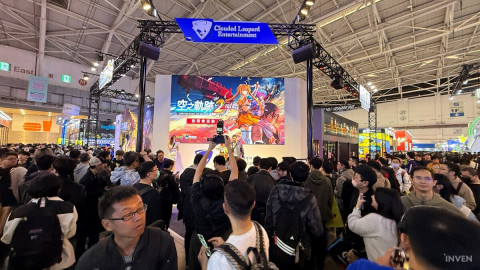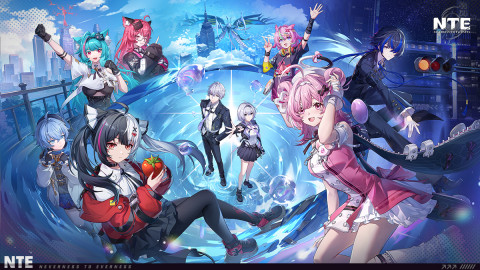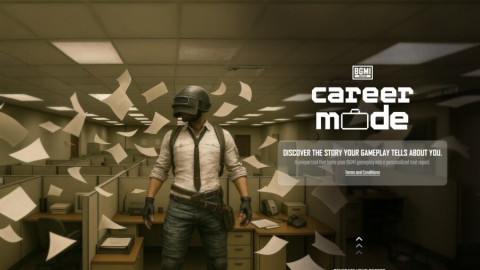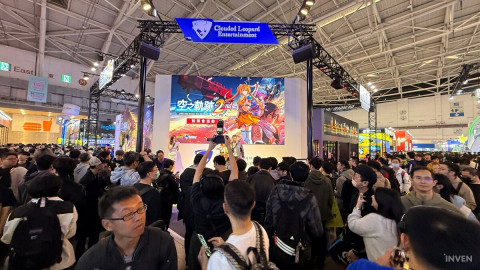
Since the launch of the Overwatch League, the important topic of female representation has been made a spectacle of by misinformed journalists who are uninterested in investigating the social norms which have resulted in a lack of diversity within esports. These authors and many of their readers see the lack of female players and broadcast talent in the Overwatch League as a problem Blizzard Entertainment is obligated to solve and, moreover, can easily do.
Both assumptions are incorrect.
In actuality, the absence of women from the League is not the result of institutionalized sexism on Blizzard’s part, but rather a testament to the pervasiveness of traditional gender roles in society as a whole which discourage young girls from gravitating to; enjoying; and, pursuing competitive gaming. This problem is generational and will not be solved overnight, nor in a year or even five.
"Girls simply do not have the luxury of playing online games for fun without first resigning themselves to the caveat of normalized sexism. "
Furthermore, its solution is not aided by the spread of misinformation; particularly, the assertion that developers, managers, and coaches have witnessed and subsequently dismissed (because they are evil misogynists) a thriving female pro Overwatch player demographic. Such demographic does not exist. This storyline is most commonly pushed by those who are not intimately involved in the Overwatch community but, instead, familiar with the most hyperbolic of headlines written about players like Geguri.

Geguri, by the way, is a female Overwatch player who was falsely accused of hacking in early release. She is probably a better Zarya than you. She is not, however, a better Zarya than those Zaryas in the Overwatch League, and besides, Zarya players have not been in high-demand for some time. Outside of her long dead, controversy-fueled notoriety, Geguri has done little to commend herself for the League. More importantly, she has spoke out multiple times on not wanting to be used as an example of League discrimination. Geguri has stated that when she was accused of hacking “no one even knew [her] gender.”
Yet, her name is peddled over and over again – as recently as January 2018, even – as an example of the rampant sexism and blatant dismissal of female talent within Overwatch.
Geguri aside, there are few noteworthy women who have strived to compete:
Team Venus, an all-female Overwatch team, was announced recently. Any of the six women included on this roster may go on to be one of the greats, or at the very least included in the League – but for now, they are relatively untested and must first grind their way through Open Division just like every other player who dreams of going pro.
177, a female Chinese pro on Lucky Future, is the one person journalists could conceivably galvanize around. She has seen the most amount of tournament success amongst women, and is one of the only women to have competed in major tournaments. But when compared to the majority of League pros – and in particular, other support players with whom she is in direct competition – she falls short.

Similarly, Kitty, a female Overwatch player who competed on France’s 2016 Overwatch World Cup team, has voiced her frustration with the current discourse regarding female representation. “Being used as a way to attack a ‘lack’ of diversity in the OWL is very frustrating. I’d rather be bad and nowhere to be seen than in the OWL because of my gender,” she wrote on Twitter.
And even similarly still, Malik and Goldenboy (both on-air talent for a variety of games, including Overwatch, and who are African-American and Puerto Rican, respectively) have expressed their frustration at having years of hard work and hustle diminished to something as generic as race. Repeatedly and in the name of blind, sensationalist activism, journalists are drowning out and disregarding the voices of those they would like to see employed.
This is not to say that the status quo is to be accepted. There is an unacceptable discrepancy between male and female players and broadcast talent in the League – but it is not a discrepancy of Blizzard’s making.
A generational reality
If you poll the average Overwatch League pro, then you will find that most came out of the womb with a mouse or controller in hand. They have been playing video games, and most typically FPS games, since they can remember – Halo and Half-Life, then maybe Call of Duty and Quake before Team Fortress 2 and Counter-Strike. They expressed an interest in gaming from a young age and their parents encouraged – or, at the very least, enabled – their hobby.
"A series of cultural roadblocks is extremely likely to divert women from a competitive gaming path."
Subsequently, whether initially intentionally or not, these players developed and honed for years the mechanical skill and game sense that is required to be able to pick up a new FPS and succeed in both a short timeframe and at a relatively young age.
Young daughters are not so lucky. As Ensue, a female Overwatch player, mused, “My mom didn’t bat an eye at my brother, but … tried to discourage me [from playing video games] because I’m a girl and it’s a little too violent.”

Traditionally, competitive gaming has been and is thought a masculine hobby, and games (again, particularly FPS games) are marketed towards boys. As it stands now, parents are simply less likely to introduce their young daughters to gaming than they are their young sons. Girls are also less likely to gravitate to the boy-friendly image-laden packaging (e.g. male characters, cars, weaponry, etc.) that decorates most games. These are images that boys, but not girls, are typically conditioned to like or identify with from a young age.
As such, Blizzard should be commended for their design and marketing of Overwatch. They have intentionally made the game’s cast of characters diverse, and their marketing relatively neutral. The representation of women and people of color in Overwatch is not necessarily vital for adults to enjoy the game, but it is key to enticing a more diverse future generation of players which will, in turn, diversify esports.
Playing on hard mode
Furthermore, girls who do pick up and engage with typical competitive games are often dissuaded from pursuing them seriously or long-term because sexist behavior is rampant in gaming communities. Everything from the hero a woman picks to the mistakes a woman makes in-game is attributed to her gender. It is a bad look, to say the least, when girls do not feel comfortable speaking in voice chat because they know the sort of response and criticism that will arise from doing so.
Pokimane, a League of Legends player and streamer, was recently threatened with rape during a match. If an immensely popular personality and skilled player can be treated that way in-game, then imagine the response the average girl player receives.
Gaming at its core is for fun; that is where every pro’s passion began. However, girls simply do not have the luxury of playing online games for fun without first resigning themselves to the caveat of normalized sexism. As it becomes even less acceptable to behave this way in-game, more girls and women will feel comfortable competing; being active in the community; interacting with their teammates; and, building the sort of skills and connections that are necessary to become a pro.
"to decry the League as a misogynistic, racist, or otherwise overtly discriminatory institution is to insult the women and POC that have made the League so successful."
In essence, the issue remains not that women do not play games or that they are inherently bad at games or that their proven skill has been outright denied by prejudiced institutions, but that a series of cultural roadblocks is extremely likely to divert them from a competitive gaming path.
A growing talent pool
Next, regarding the lack of women as on-air talent: there are currently very few women pursuing such employment in Overwatch, but this will change within a year or two. This is where it becomes especially important to remember that Overwatch esports is very young, and its talent pool is still developing.
In other games, numerous women are employed as casters and analysts, such as Gilly in Heroes of the Storm; Pansy in PlayerUnknown’s Battlegrounds; and, Froskurinn in League of Legends. Even more women are employed as hosts or for supplemental content, including SeltzerPlease for a variety of titles; Smixity in Counter-Strike; and, currently Soe in Overwatch.
Crumbz, who currently sits on the desk, is Venezuelan, and Blizzard has previously employed a more diverse cast than we see today. Notably, the aforementioned Malik was offered a position within the Overwatch League, which he declined.

Men still outweigh women as broadcast talent, but the landscape is changing rapidly. As Overwatch grows as an esport, so too will its talent pool and the number of women (and POC) pursuing these positions. Currently, however, those who sit on the desk are those who have dedicated themselves to the esport since its release, or have otherwise proven their talent elsewhere and since jumped ship to Overwatch.
A league is more than its players
Finally, it is important to note that behind the scenes, Blizzard employs a ton of women to run Overwatch League. Women fill positions as player managers, observers, graphic designers, and much, much more. The director of esports for Blizzard is, for what it is worth, a woman named Kim Phan who earned her place in the industry after years of hard work in the Warcraft 3 competitive community.
On a similar note, diversity is not limited to male and female. Overwatch League players and their team management is far from being a homogenous body of white males, and the Houston Outlaws employ the League’s only openly gay player. Concisely, Overwatch esports is much more than its players and its broadcast talent, and to decry the League as a misogynistic, racist, or otherwise overtly discriminatory institution is to insult the women and POC that have made the League so successful.

There is absolutely room for growth and improvement regarding diversity in esports. The reality that esports is a male-dominated industry is the result of complicated social norms that are rooted in the very fabric of our culture. It is not a problem unique to Overwatch, nor is it the result of any one person’s or institution’s intentional denial of diverse talent.
We can alter this reality in the coming years by doing our part to remove the stigma that gaming is “for the boys.” In being kinder and more considerate to our teammates and in stepping up when we see women – and especially young girls – being bullied out of gaming communities by brutish, sexist behavior, we can be the architects of meaningful long-term change.
EDITORS NOTE: A small part of this article speculating on Geguri’s self-evaluation of her own skill has been edited to better reflect her quoted statements and not rumors about possible statements.
The following article was written freely based on the author's opinion, and it may not necessarily represent Inven Global's editorial stance.
Sort by:
Comments :8
 Best Comment
Best Comment
-
5

level 1 FaceXFootStyle
Created an account just to comment on this article. Superbly written and well-spoken. Thank you for your informed, rational approach to a subject that is incredibly important, but unfortunately is not often met with such tactfulness. We need more of your voice!
-
5

level 1 FaceXFootStyle
1
Created an account just to comment on this article. Superbly written and well-spoken. Thank you for your informed, rational approach to a subject that is incredibly important, but unfortunately is not often met with such tactfulness. We need more of your voice!
-
1
level 1 MrEkShun
@FaceXFootStyleAnd I literally created an account to upvote your comment! I couldn't agree more. This article voiced opinions that I had already been mulling over for years. It solidified those vague impressions and even presented facets that I'd never considered but certainly agree with. We won't fix sexism or discrimination in general by merely advocating diversity for the sake of diversity. We need to address the root of the problem, which will always begin with social norms and expectations formed without deep consideration.
-
-
0
level 1 Danny_Yokido
They only started at Halo? Amateurs. They aren't talking about the old days playing shooters like the original ghost recons on ps2/Xbox, or perfect dark on the ps1, or even Sarge's heroes on the Dreamcast. Then again at 24 and retired from competing, I guess that makes me relatively old.
I totally agree on the statement about the general attitude of some male players against females in voice chat though. It's something that I and the members of my gaming community usually try to stop when it happens around us. I'm personally pretty bothered by things I've heard in OW voice chat during comp matches like "of course we lost with a girl as DPS" or the assumption that women/girls play support because it requires less skill (which is false. Playing support well requires a lot of situational awareness, in ways similar to tank.)
On the subject of blindly giving professional spots to women (or POC, for that matter) just to play at "diversity," I also agree. It would be a slap in the face to both the person shoved into the position and to potentially better players passed up for the sake of that diversity. In any type of competition environment, the first (and main) thing that should be considered is skill (and legal elligibility, of course).
Case in point: the woman I'm with now is a very good call of duty player. Better than most of the other members of the general public and even our own community. I'm better than her. She openly admits this. She keeps up with me well in games and against each other (which I personally find to be very attractive), but overall I consistently perform better. If our community were to form a team to go to competitions and had to choose between the two of us, it wouldn't make sense not to give the spot to the consistently better performer unless there was an issue with teammate or schedule compatibility. She, like many of the female players mentioned in this article, would be pissed to be handed a spot solely because she's a woman, even if she is an above average player. Same way I'd be mad if I was given the spot over someone better just because I'm black.
A lot can improve in the eSports world from a lot of angles, but when some reporters or bloggers spew skewed or downright false information with little research and no real investment in the subject they're writing about, it doesn't usually help any of the issues. It actually can do more harm than good sometimes. Yes, diversity in eSports is something that can, should, and likely will improve with time, but if we're going to draw attention from the general public to it, let's at least have the right reasons, motivations, and information.
I typed a lot of text walls but I had a lot to say apparently. The TL;DR is I think this was a well-written article and I agree with many of it's points.
-
-2
level 1 Draco
Women have the choice to strive for success in esports, if a majority of them don't and there is a gender disparity don't assume there is bias or discrimination. Stop looking down on women as if they can't make decisions for themselves. And inven, I would suggest you keep this social justice shit out of your content which has been perfectly fine up until this article. Not only will you annoy enough people that they won't read your articles anymore, you will be relegated to the corner with pandering sites like Kotaku and polygon. Choose wisely.
-
1
level 1 TheCatMobile
If I ever have a little girl, as soon as she is out of the womb there will always be a spare mouse and controller, if and when she is interested. <3 -
0
level 1 Bhavya_Teja
I'm in love x 150
-
0

level 1 Krippen
Funny how the article almost pretends league of legends doesn't exist except for the Pokimane case.
Sjokz is probably he biggest female personality in esports and Crumbz carved out his place in the scene from league pro to analyst before switching to OWL.
That ultimately means nothing in the context of the article and I agree with all the points it makes. This is just a passing observation.
-
1
level 1 M3RLIN
I just created an account to say that this was a fantastic read. I think you hit all the nails on the head with this. It's good to know that there are still sensible and critical thinkers out there!






